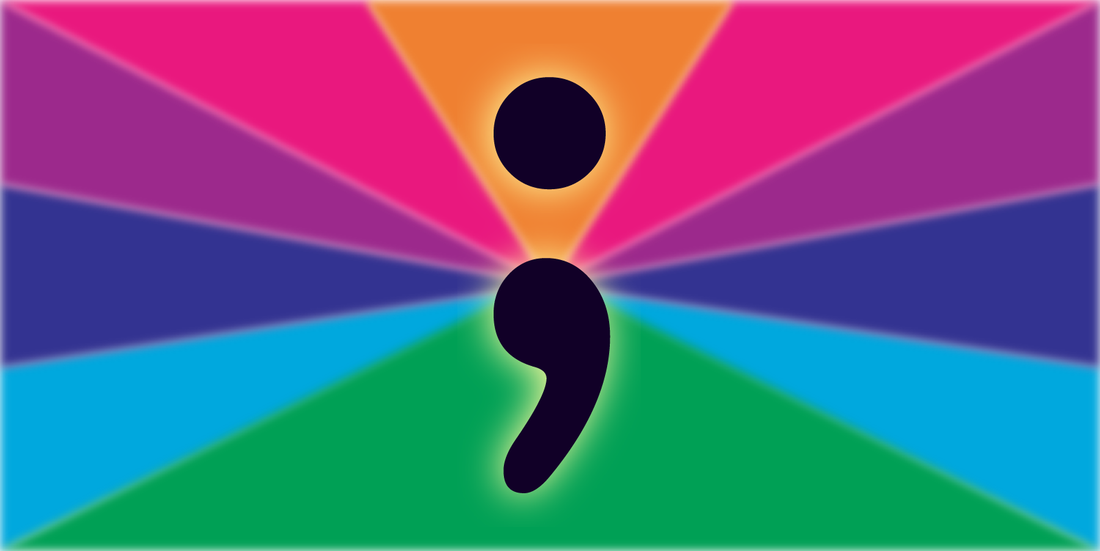Please allow me to demystify my friend the semicolon. I want to allay your fears and enable your enjoyment.
First, forget the word colon and instead think of the semicolon as a period riding around on the shoulders of a comma. It’s kind of like a hybrid of those two punctuation marks, but it has very specific uses. Two, to be exact.
1) It enables two conceptually connected sentences to hold hands.
Sometimes you’ll have two sentences that feel like they belong together. Rather than separating them with a harsh full-stop period, you can let them indulge in a public display of affection by placing a semicolon between them. Like so:
You want to raise Madagascar hissing cockroaches; I want a divorce.
I guess I’m past due for an oil change; my engine appears to have caught fire.
His phone never leaves his hands; I shudder to think of the microbes it hosts.
That “man of God” sure owns a lot of Lamborghinis; I guess he’s answered the age-old question, “What would Jesus drive?”
(Notice that the first letter following the semicolon doesn’t get capitalized unless it’s a proper noun or the word I. You’ve turned two sentences into one.)
2) It tidies up and clarifies complex lists.
Usually when you punctuate a series of things, commas will easily do the job of separating one thing from the next. Like this:
I notice you’re buying rubber gloves, a ski mask, a gun, and bleach.* Got plans for the weekend?
But sometimes, the items in your series are complex:
- Bacon Level, Alabama
- French Lick, Indiana
- Zzyzx, California
In this case, you could use semicolons to separate the three listed places:
The shell corporation had offices in Bacon Level, Alabama; French Lick, Indiana; and Zzyzx, California.
Those semicolons reduce the chaos and make things easier to read, right?
Another example might be:
The featured speakers at the triplets convention were Huey, Louie, and Dewey Gravelpit; Sandy, Mandy, and Candy Shrinklepie; and Ed, Ned, and Fred Pseudonym.
That’s it! Now you know how to use the semicolon!
To review: You can use a semicolon 1) to bring two sentences together or 2) to keep several complicated phrases apart. Either way, it’s making the world a better place.
Thanks, semicolon; I'm sorry I've been bad-mouthing you for so long.
The semicolon never hurt anybody; it only wants to help.
You don’t need a PhD to use a semicolon; it’s here for everybody.
I could keep doing this all day; instead, I’ll let you go forth and punctuate.


 RSS Feed
RSS Feed